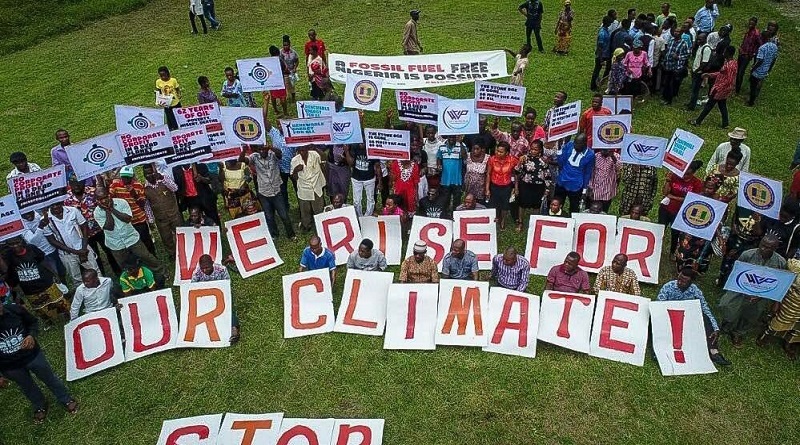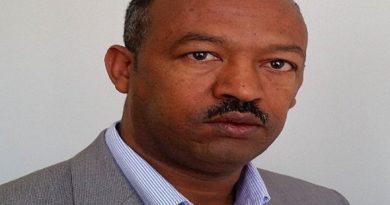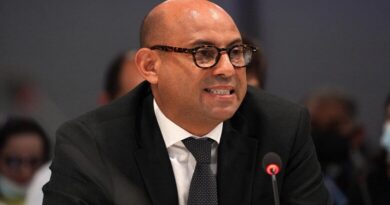Rise for Climate: Massive global mobilisation concludes demanding real climate leadership
Thousands of people around the world took part in more than 900 actions in 95 countries for the Rise for Climate mobilization as they demanded political action to keep fossil fuels in the ground and deliver a swift and just transition to 100% renewable energy for all.
People have delivered clear demands to governments and decision-makers as they head into a series of important summits and negotiations to fix the climate crisis later this year. One month before the official release of the IPCC special report on 1.5°C and the upcoming United Nations climate change conference in Poland (COP24), activists have made clear that concrete steps are needed to quit fossil fuel production and slash emissions by 2020 as the only way to avert the worst case scenarios of climate change.
Hundreds of thousands of people found creative and powerful ways to voice their concern for the state of the planet and to call for an end to fossil fuels and a worldwide transition to renewable energy before 2020:
In Paris, over 50,000 people rallied in front of the Hôtel de Ville, following the recent resignation of France’s environment minister, Nicolas Hulot, who criticized the Macron Presidency for treating climate action as an afterthought, despite rhetoric to the contrary. Over 150,000 people joined actions throughout the country, making it the largest climate mobilization in France’s history.
Communities throughout the Pacific region mobilized in support for renewable energy, calling on decision-makers to prevent global temperature increase beyond 1.5°C over pre-industrial levels.
In Manila, activists held one of the first virtual marches, representing vulnerable and frontline communities from the Philippines and as a commentary to the shrinking democratic space in the country.
In Bangkok women’s rights groups, farmers and environmentalists marched just outside of the UN additional session of climate talks, where negotiators were unsuccessful in hashing out the last details of the Paris Agreement’s rulebook.
In Sydney local groups sailed a ship along the harbour flying Rise for Climate banners and hosted a protest in front of the Prime Minister’s office to protest the country’s addiction to coal mining.
In Kampala 25,000 people joined a festival and a children’s march. Thousands more joined events and gatherings throughout the African continent.
In Copenhagen, where the first attempt at a universal climate agreement failed in 2009, over 15,000 people joined the largest march ever to hold European leaders accountable on climate. In Brussels, activists brought the mobilization to the doorstep of the European Parliament, while in Germany activists targeted churches and local governments to divest from fossil fuels.
Astrobiologist Cyprien Verseux and colleagues showed support to the global mobilization from the ever shrinking ice shelves of Antarctica, marching through below zero temperatures.
Hundreds of events all over the United States saw tens of thousands of people hit the streets for climate jobs and climate justice, concluded by the largest march the US West Coast has ever seen in San Francisco, joined by over 30,000 people, as street artists painted a world record street mural.
3,000 people gathered in New York to call on Governor Andrew Cuomo, Mayor Bill de Blasio, and all elected officials move the state off fossil fuels through a just transition to 100% renewable energy.
In Miami, Florida, thousands rallied at a high-profile concert to call attention to the impacts of hurricanes and sea level rise on the city’s communities.
In Puerto Rico, 1,500 young people and their families joined together to urge the government to take bold and meaningful climate action, and motivate communities to initiate their own renewable energy projects.
In Canada, First Nations communities and activists held rallies along the proposed route of the TransMountain pipeline, protesting against the government’s costly acquisition of the infrastructure from the US-based firm Kinder Morgan, after it had announced plans to cancel the project.
“Climate change is the defining issue of our time. It is a crisis of democracy, justice and human rights,” said May Boeve, executive director of 350.org. “The climate movement is made stronger by its sister movements: for human rights, economic justice, democracy, and indigenous rights”.




